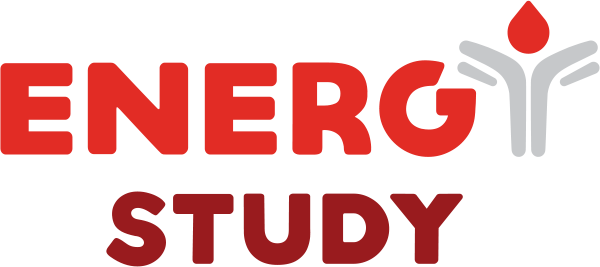Study Overview
ENERGY is a clinical research study of an investigational medicine to see if it is safe and effective in treating people with warm autoimmune hemolytic anemia (wAIHA). The ENERGY study includes two parts: Double-Blind Period and Open-Label Extension.
The image depicted contains models and is being used for illustrative purposes only.

The image depicted contains models and is being used for illustrative purposes only.
Study Overview
ENERGY is a clinical research study of an investigational medicine to see if it is safe and effective in treating people with warm autoimmune hemolytic anemia (wAIHA). The ENERGY study includes two parts: Double-Blind Period and Open-Label Extension.
Who can enroll in the study?
You may be able to participate if you are:
Additional eligibility criteria will be assessed by the study doctor or staff during the screening process prior to being enrolled in
the study. You will visit the study clinic twice for health exams and tests. Not all individuals may qualify for this study.
What can I expect if I join the study?
Double-Blind Period
The first part of the study is the Double-Blind Period, which will include 17 visits over a period of 32 weeks. If you choose to participate you will be randomly assigned to one of three treatment groups.
Group 1 will receive infusions of placebo every two weeks.

Group 2 will receive alternating infusions of the investigational medicine and placebo every two weeks.

Group 3 will receive infusions of the investigational medicine every two weeks.


You will have a 2 in 3 chance of receiving the investigational medicine and a 1 in 3 chance of receiving only placebo. Neither you nor the study doctor will know the group assignments. No matter which group you are in, you will receive the same level of care.
Open-Label Extension
If you complete the Double-Blind Period, you may have the opportunity to participate in the Open-Label Extension. The Open-Label Extension will include up to 75 visits over the course of 150 weeks. Everyone will receive the investigational medicine in the Open-Label Extension.
Find a Study Site Near You
For a complete list of all the site locations, please visit the ENERGY Study page on ClinicalTrials.gov.
FAQ
Each visit will take approximately two hours and may include physical exams, urine tests, blood tests, and/or an EKG.
The IV infusion will take 30 minutes for the first visit and 15 minutes for each visit thereafter.
What is a clinical trial?
A clinical trial, also called a clinical research study, is a carefully designed scientific evaluation conducted by doctors and researchers to determine if an investigational medicine, device, or procedure is safe or effective.
Trials are conducted in four phases:




